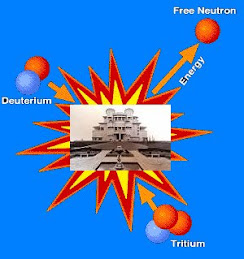Kelistrikan dan Kemagnetan
Topics covered:
Electromagnetic Induction
Faraday's Law
Lenz Law
Complete Breakdown of Intuition
Non-Conservative Fields
Instructor/speaker: Prof. Walter Lewin
Free Downloads
Video
- iTunes U (MP4 - 106MB)
- Internet Archive (MP4 - 106MB)
» Download this transcript (PDF)
I'd like to thank you for your evaluations.
They were very useful to me.
I already sent e-mail to about 50 students and I had some interesting exchanges with some of you.
Many of you are very happy with their recitation instructors.
That's great.
Many are moderately happy.
Maybe that's OK.
But there are quite a few who are very unhappy with their recitation instructors.
If you are very unhappy with your recitation instructor, you are complete idiots if you stay in that recitation.
We have 13 recitation instructors, and I can assure you that it will be very easy to find one that agrees with you, and you can come and see me if that helps.
Some are better than others.
That's the way it goes in life.
Some students would like to see more cut-and-dried problem solving in my lectures.
I think that's really the domain of recitations.
Lectures and recitations are complementary.
In lectures, I prefer to go over the concepts and I always give numerical examples to support the concepts -- in a way that's problem solving -- and I show demonstrations to further support the concept, because seeing, obviously, is believing.
I try to make you see through the dumb equations and admittedly my methods are sometimes somewhat different from what you're used to here at MIT.
I try to inspire you and at times I try to make you wonder and think.
And I want to keep it that way.
I believe that hardcore probling- problem-solving is really the domain of the recitations.
Many of you found the exam too easy, and many of you found the exam too hard.
Some complained it was too hard because it was too easy.
[audience laughter] Quite ironic, isn't it?
They say we want more math, we want more standard problems.
Look, who wants more math?
I'm teaching physics.
I test you physics, I don't test you math abilities.
If you digest the homework, and that's very important that you make the homework part of your culture, that you study the solutions.
The solutions that we put on the web, today, 4:15, solutions to number four will go on the Web.
Believe me, they are truly excellent solutions, not cut and dried.
They give you a lot of background.
If you digest those solutions, then the concepts will sink in.
And now, at your fifty minute test, do you really want problems which are complicated maths?
Clearly, not.
I could try that, during next exam, but then I may have to buy myself a bullet-proof vest to be safe.
Concepts is what matters.
When I gave my exam review here, I highlighted the concept.
Each little problem I did here was extremely simple.
Conceptually, they were not so simple.
But from a math point of view, trivial.
Clearly, I can not cover all the subjects in a fifty minute exam.
I have to make a choice, so your preferred topic may not be there.
Some of you think that the pace of this course is too slow.
Some of you think it's too fast.
The score, the average score, was 3.8.
4.0 would have been ideal.
What do you want me to do?
I can't accommodate all of you.
Those who think it's too slow, and those who think it's too fast.
3.8 is close enough to ideal for me, 4.0.
And so I'll have to leave it the way it is.
Besides that, keep in mind you are now at MIT.
You're no longer in high school.
Now the good news.
There were quite a few students who said the homework is too long.
Not a single person said it was too short.
I can fix that.
I will reduce all future assignments by about 25%, effective tomorrow.
I have already taken off assignment number five, two problems.
You're down now to seven, and I will do that, all assignments that are coming up.
My pleasure.
Pengembangan Perkuliahan
1. Buatlah sebuah Esai mengenai materi perkuliahan ini
2. Buatlah sebuah kelompok berjumlah 5 orang untuk menganalisis materi perkuliahan ini
3. Lakukan Penelitian Sederhana dengan kelompok tersebut
4. Hasilkan sebuah produk yang dapat digunakan oleh masyarakat
5. Kembangkan produk tersebut dengan senantiasa meningkatkan kualitasnyaVisualizations: Instructors: Course Co-Administrators: Technical Instructors: Course Material: The TEAL project is supported by The Alex and Brit d'Arbeloff Fund for Excellence in MIT Education, MIT iCampus, the Davis Educational Foundation, the National Science Foundation, the Class of 1960 Endowment for Innovation in Education, the Class of 1951 Fund for Excellence in Education, the Class of 1955 Fund for Excellence in Teaching, and the Helena Foundation. Many people have contributed to the development of the course materials. (PDF)Staff
Prof. John Belcher
Dr. Peter Dourmashkin
Prof. Bruce Knuteson
Prof. Gunther Roland
Prof. Bolek Wyslouch
Dr. Brian Wecht
Prof. Eric Katsavounidis
Prof. Robert Simcoe
Prof. Joseph Formaggio
Dr. Peter Dourmashkin
Prof. Robert Redwine
Andy Neely
Matthew Strafuss
Dr. Peter Dourmashkin
Prof. Eric Hudson
Dr. Sen-Ben LiaoAcknowledgements
Terima Kasih Semoga Bermanfaat dan mohon Maaf apabila ada kesalahan.





Tidak ada komentar:
Posting Komentar